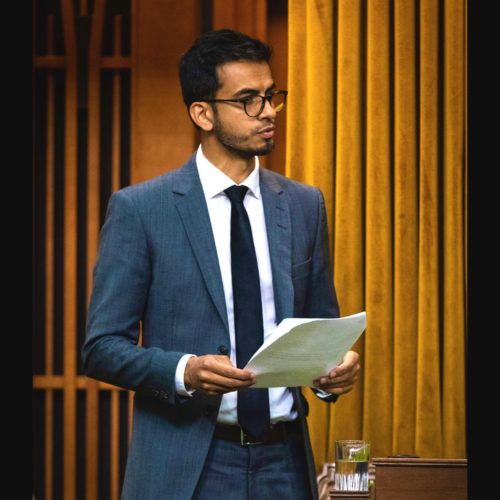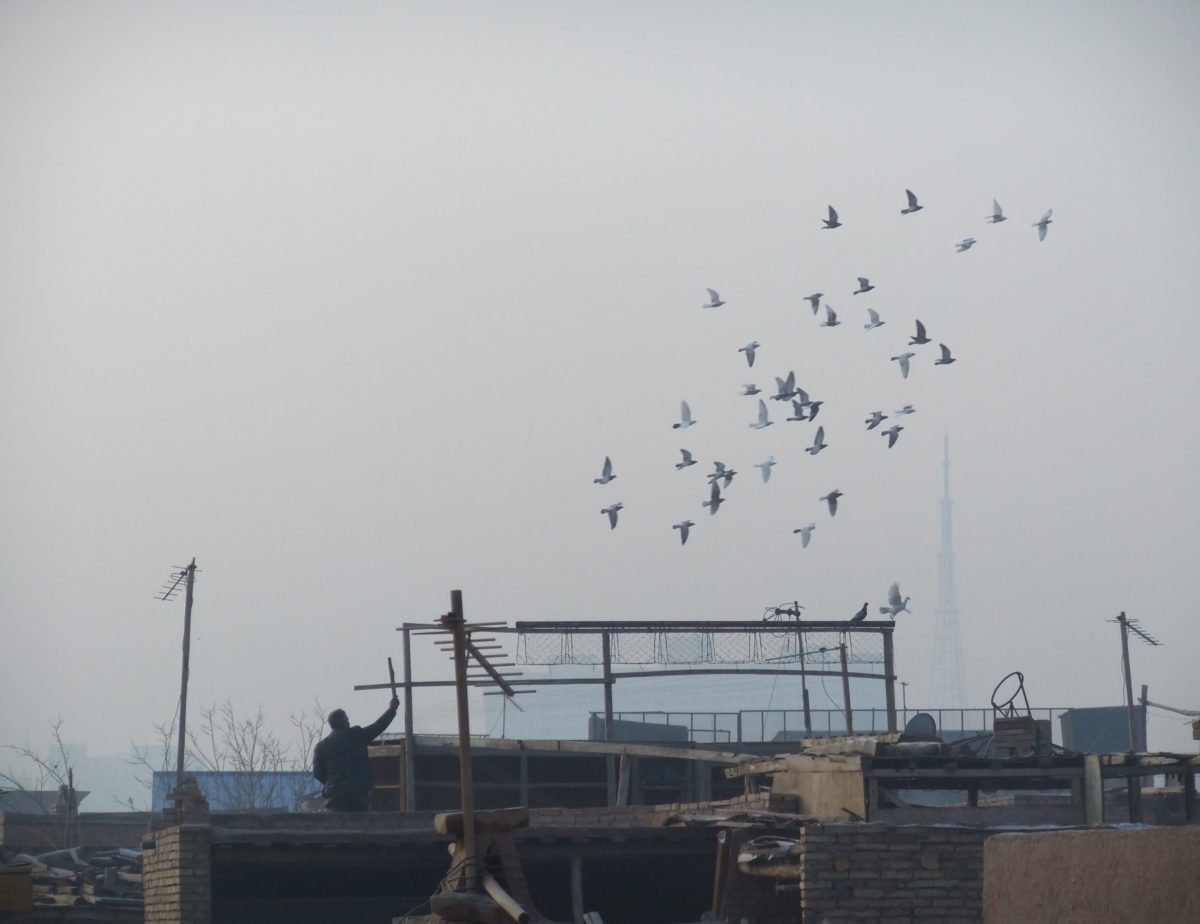Canada will allow 10,000 Uyghur refugees to settle in next two years
‘This is only the beginning’: After a decision by Canada’s parliament to welcome Turkic Muslim refugees who have fled China, Uyghur activists believe the government and prime minister Justin Trudeau himself will follow up with further action.

The Canadian parliament today unanimously voted in favor of a non-binding proposal for the resettlement of 10,000 Uyghur refugees from China’s Xinjiang region into Canada over the next two years.
Rapturous applause greeted the overwhelming “yes” vote of 322-0 at the House of Commons. Prime Minister Justin Trudeau himself voted for Liberal member of parliament Sameer Zuberi’s bill, which also called on the government to recognize that “Uyghurs and other Turkic Muslims” who have fled to third countries face “pressure and intimidation” “to return to China, where they face the serious risk of mass arbitrary detention, mass arbitrary separation of children from their parents, forced sterilization, forced labour, torture and other atrocities.”
The vote came after two days of impassioned speeches urging the Trudeau administration to stand up to China and give refuge to thousands of displaced Uyghurs living in fear of their lives.

Sameer Zuberi is a Liberal member of Canada’s parliament representing the constituency of Pierrefonds-Dollard in Quebec. Image Source: Sameer Zuberi Facebook page.
Sameer Zuberi expressed grave concern over the “gross and systematic abuses occurring towards the Uyghur people.” Zuberi’s bill aims to expedite their resettlement to Canada over a two year period starting in 2024.
Canada has been stepping up actions in response to the plight of Uyghurs following the findings of a government subcommittee commissioned in 2018, at the height of the detentions in Xinjiang, to investigate allegations of human rights abuses.
Shocked by the testimonies of seven witnesses heard between 2018-2020, the subcommittee was “profoundly disturbed” by the evidence and convinced that Beijing was clearly set on a course to eradicate Uyghur culture and religion, together with the Uyghur identity itself. Members were persuaded that “the actions of the Chinese Communist Party constitute genocide as laid out in the Genocide Convention.”
The subcommittee urged the Government of Canada to sanction Chinese government officials complicit in the atrocities and “work with its international allies and multilateral organizations to condemn the Government of China’s use of concentration camps to unlawfully and unjustly detain Uyghurs and other Turkic Muslims.”
They also warned the Canadian Government and Canadian companies to be alert to complicity in forced and coerced labor and to draw up robust legislation to prevent goods tainted by this from entering Canadian markets. The subcommittee called on Canadian individuals, companies and public bodies to ensure they “are not investing in technology companies involved in, supporting, or facilitating the abuse of fundamental human rights in China.”
Noting the “tremendous risk and sacrifice that Uyghurs face when they speak publicly about the horrors they and their families have endured,” the subcommittee recognised the numbers of Uyghurs and Turkic peoples who become stateless, unable to secure a permanent refuge once they escape their homeland. It advocated an “exceptional refugee stream” for these and all Uyghur human rights defenders who were particularly at risk of falling foul of China’s long arm.
Canada has a bad history with refugees, but that’s changing
Canada has come a long way since it turned away a boat full of hundreds of passengers aboard the Komagata Maru, a Japanese vessel carrying Sikh, Muslim and Hindu migrants who were refused entry under 1914 immigration laws.
Further staining its copybook by refusing to give sanctuary to a ship laden with 907 mostly women and children fleeing the Holocaust in 1939, a senior Canadian immigration official at the time replied to the question of how many Jews would eventually be considered for entry into Canada, by saying “none is too many.”
Canada’s record has steadily improved despite an ominously named “Refugee Deterrents and Detention Bill” in 1987. Thousands of Chilean and Latin Americans, Iranians fleeing the Shah, Bosnian Muslims and 60,000 “boat people” following the Vietnam War have also sought sanctuary. More recently 25,000 Syrians have been resettled, thousands of Ukrainians offered a safe haven and 40,000 Afghans are in process.
Salam Zahid, MP and immigration committee member, speaking in the debate wanted to send a strong message to Canada that “refugees make Canada better,” and to China that “the world is still watching.”
She warned against continuing to “do business as usual with a regime that is perpetrating genocide against an entire community, that puts a minority in re-education camps and then denies their very existence.”
Zahid cited the cases of 13 Canadian citizens she said were held hostage in China over the Vancouver arrest of Huawei executive Mèng Wǎnzhōu 孟晚舟, and mentioned Huseyincan Celil, a Uyghur Canadian who was arrested in Uzbekistan in 2006 and extradited to China on “terrorism” charges. He is still languishing in a Chinese jail 17 years into his life sentence
February 22, 2021 saw Parliament voting unanimously 260-0 to recognise a genocide in Xinjiang, but criticisms have been levelled since at Prime Minister Justin Trudeau and his cabinet who continue to sit on the fence. Uyghur leaders are puzzled at his reluctance given that, according to Uyghur Keyum Masimov, project leader of the Ottawa-based Uyghur Rights Advocacy Project (URAP), every one of the 2,000 or so Uyghur Canadians has at least one family member, neighbor, or friend locked up in the concentration camps.”
Justin Trudeau: ‘This is only the beginning’
Despite following the U.S. in characterizing human rights abuses in Xinjiang as “genocide”, Canada lags behind America in meeting its obligations under the Genocide Convention if it recognizes that a genocide is taking place. A move last year by lawyers from the URAP to sue the Canadian government for its inaction fell at the first hurdle, with the Attorney General arguing that the petition raised issues that could not be tried by a court, given their political nature. In his judgement, a year down the track on January 26, 2023, Justice Diner, whilst accepting “the gravity of the issues raised,” concluded, “the mere potential existence of a genocide does not automatically ground proceedings before the Court.”
But there are other moves in progress: The Fighting Against Forced Labour and Child Labour in Supply Chains Act, Bill S-211 could come into force in the next few months and it would impose restrictions and punitive actions on companies with tainted supply chains. Another bill to force large companies to file a report every year detailing their efforts to root out forced labor has been wending its way through the system since November 24, 2021 but has currently stalled at the Committee stage.
But today, many Uyghurs in Canada and around the world were overjoyed. Mehmet Tohti, executive director of the Uyghur Rights Advocacy Project, told the China Project he was excited and enthusiastic about the unanimous show of support for Uyghurs, particularly from members of the Canadian cabinet including Trudeau, who came in person to place their vote.
“This is a historic day not only for Uyghurs, but for other democratic nations in the world who have witnessed this process,” he said. “Ten thousand might not be a large number for Canada, but for Uyghurs it is hugely symbolic.”
Trudeau and his cabinet have to date distanced themselves from using the word “genocide,” but by voting for the Uyghur refugee bill, Tohti felt there were the beginnings of a willingness to indirectly acknowledge it. According to Tohti, who spoke to Trudeau after the vote, there were indications of more support for Uyghurs on the horizon. “He told me that this was only the beginning,” said Tohti.






